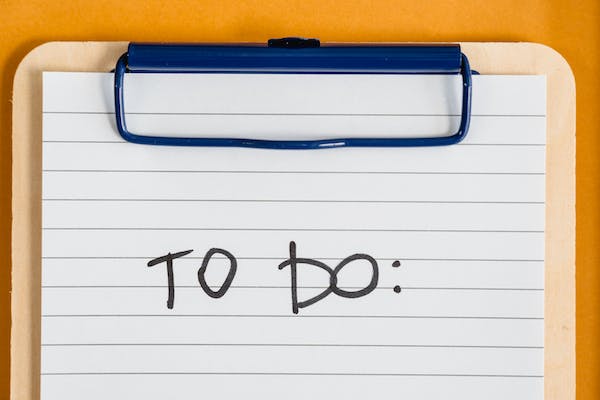11 Immediate Steps to Take After a Car Accident to Get Compensated

We’re glad you’re still here after that car accident. Shaken up, no doubt. Once the debris settles and EMTs clear out, the legal questions start. What now? Could you be compensated for repairs, medical bills, lost wages?
At Okoye Law, we give accident survivors actionable guidance daily. Let’s focus on immediate priorities: documentation, communication, preservation, and investigation.
Get these next steps right, and your case grows stronger by the hour. Miss key details early on, and proving fault months down the road becomes dicey. Here’s exactly what to do.
Step 1: Stop and Ensure Everyone’s Safety
Check that you and all passengers are uninjured. If anyone needs urgent medical care, call 911 immediately.
Once you’ve assessed injuries, pull your vehicle over to the shoulder, side street, or parking lot. Turn on your hazard lights to alert other drivers and prevent secondary accidents. If your car is movable, get it out of any lanes of traffic.
Step 2: Call the Police
Contact the police to report any accident that caused injuries or major vehicle damage. In South Carolina, you must also file a report if there was more than $1000 in property damage.
Provide the exact location of the accident and a description of what happened. Request that an officer come to the scene. Get the badge number of the responding officer and ask if they will file an official police report. Obtain a copy of this report, as your insurance company will need it.
Having a police report supports your account of the accident. It also documents important evidence like weather and road conditions before the scene changes.
Step 3: Exchange Information
Collect essential info from the other driver(s) involved:
- Full name, address, and phone number
- Driver’s license number
- License plate
- Insurance company and policy number
Also, get contact details for any passengers or eyewitnesses. They may provide statements later if liability is disputed.
Step 4: Seek Necessary Medical Attention
Even if you don’t feel hurt immediately after an accident, still get examined by a doctor. Symptoms from car accident injuries sometimes show up hours or days later. Adrenaline can mask pain temporarily.
Head to an emergency room or urgent care right away if you have:
- Bleeding cuts
- Bruises/swelling
- Abdominal pain
- Arm/leg pain
- Back/neck pain
- Headache
- Dizziness, blurred vision, nausea
Follow up with your primary doctor for continued care. Physicians will document symptoms like pain, stiffness, headaches, which support your injury claim.
Save all bills and records related to medical treatment after the accident. Your car insurance or health insurance should cover accident-related expenses, but proper documentation is essential.
Step 5: Document the Car Accident
Take clear photos capturing damage to all vehicles, objects/buildings impacted, any injuries sustained, and the overall scene. These will supplement the police report.
While details are still fresh, write down an account of how the accident happened. Note visibility, road conditions, weather, speed, and any other factors that contributed to the collision.
Did the other driver run a red light? Were they speeding or driving recklessly? Your documentation should capture these relevant circumstances.
Step 6: Notify Your Car Insurance Company
Call your car insurance provider immediately after an accident. Inform them no matter how minor, even if you don’t plan to file a claim. Let them know:
- Time and location of accident
- Injuries to you or your passengers
- Damage to vehicles and other property
- Name and insurance details of other involved drivers
- Police report case number
Cooperating fully with your insurer from the start aids the claims process. Understandably, many accident victims are shaken and overlook this vital step of reporting to their insurance provider right away. But prompt notification is key.
Step 7: Get Your Vehicle Towed, if Needed
If your car is disabled and can’t be safely driven, arrange towing to a repair shop. Your insurer can provide suggestions.
Before the car is towed, remove any valuables. Also, photograph the odometer to record mileage at the time of the accident. This protects against improper towing charges or accusations that you drove the vehicle extensively after the collision.
Getting your car to a repair shop quickly also allows the shop to give an estimate to your insurance adjuster.
Step 8: Request a Rental Car
If your car is undrivable following the accident, ask your insurer about coverage for a rental vehicle. Policies often include loss-of-use provisions that pay for a rental while yours is in the repair shop.
Clarify how many days of rental coverage you have and any limitations on rental costs per day. Get the rental car arrangement noted on your claim file. Keep the rental agreement and receipt to submit for reimbursement.
Using your own insurance-provided rental rather than accepting one from the at-fault driver’s insurer protects you later. You avoid accusations of voluntarily accepting a settlement or using a rental beyond the repair period.
Step 9: Track Time Missed from Work
Keep a detailed log of any days missed from work due to the accident and related medical appointments. Also, note if injuries reduced your work hours or affected productivity.
Provide this documentation to insurers to account for lost wages as part of your accident claim. Lost earning capacity is a common demand, but you must supply evidence to justify the amount based on missed hours.
If injuries cause permanent inability to work or reduced earning potential, an experienced personal injury attorney can pursue this damage category on your behalf. But, maintaining meticulous work absence logs strengthens the work loss portion of any claim.
Step 10: Save All Accident-Related Documents
Retain hard and digital copies of everything pertaining to the accident for submission to insurers:
- Medical receipts and records
- Auto repair estimates/invoices
- Towing/rental car receipts
- Photos/video
- Police report
- Your written account
- Correspondence with insurance companies
Maintaining thorough documentation prevents disputes over damages or liability later on.
Step 11: Consider Hiring a Car Accident Lawyer
For severe crashes involving substantial injuries or vehicle damage, consult an attorney experienced with South Carolina car insurance claims.
An attorney can handle communication with insurers if they wrongly deny, delay, or dispute your rightful claim. We fight to prove liability and maximum compensation so clients can fully recover from the accident.
At Okoye Law, our accident attorneys empower clients to take control after a collision. We manage the insurance claims process from start to finish so you can focus on healing – physically and emotionally. With years of experience specifically with South Carolina car insurance policies, let us stand by your side. Reach out today to schedule a free consultation.
